Best Credit Cards Available in 2023
Table of contents
- The Evolution of Credit Cards
- The Benefits of Credit Cards
- Navigating Potential Risks
- Credit Cards vs. Debit Cards and Cash
- Choosing the Right Credit Card
- Innovative Uses of Credit Cards
- Technological Advancements in Credit Cards
- Maintenance and Upkeep of Credit Cards
- Embarking on Your Credit Card Journey
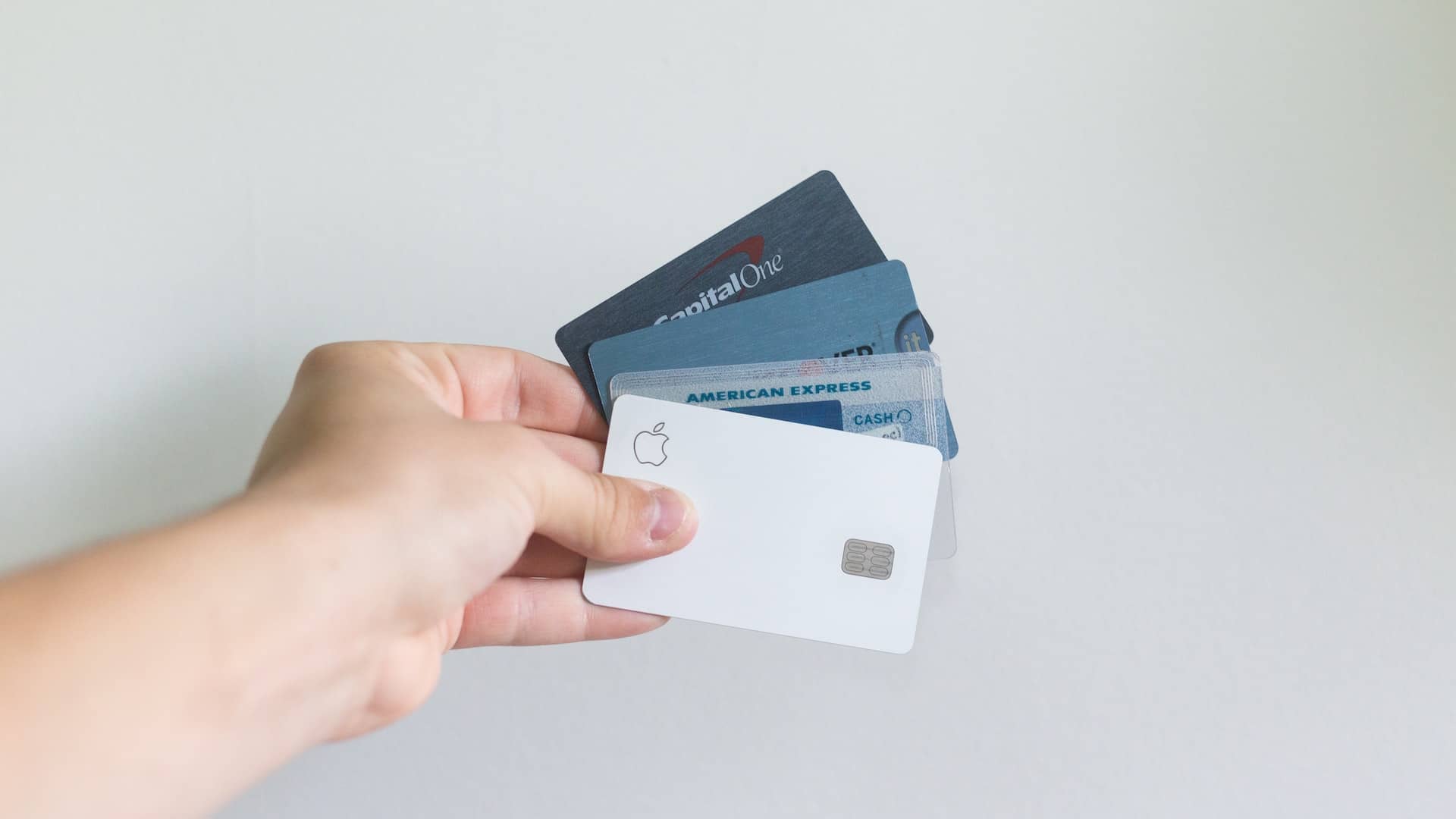
In the intricate tapestry of today’s financial world, credit cards are not just a thread but a crucial pattern. They are more than a mere convenience; they are a necessity in our digital age. With a plethora of options at your fingertips, selecting the right credit card that aligns with your financial goals and lifestyle is paramount. This guide aims to illuminate the path to the best credit cards of 2023, ensuring you make an informed choice.
The Evolution of Credit Cards
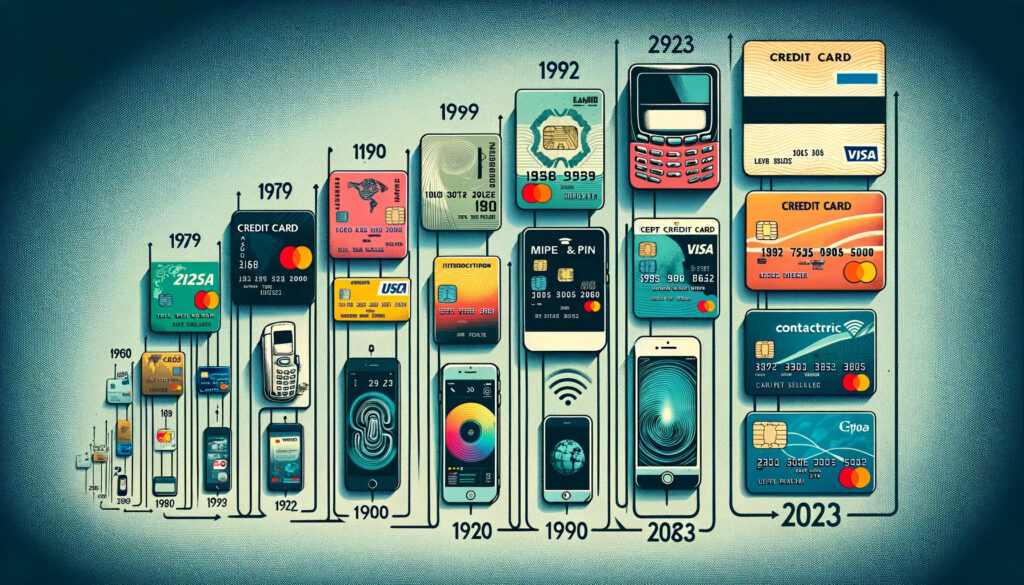
Credit cards have significantly evolved from their initial role as emergency financial tools to become essential instruments in everyday financial management. Initially designed for unexpected expenses or large purchases, they now facilitate daily transactions, offering more than just a credit line. This evolution reflects their growing importance in modern financial practices.
Today, credit cards are pivotal for effective budgeting, offering detailed spending insights to help users manage finances better. They also play a crucial role in building credit history, where responsible usage can enhance a user’s credit score. Understanding this transformation highlights the multifaceted role of credit cards in contemporary financial life.
The Benefits of Credit Cards
- Cashback Rewards: Earn a percentage of your spending back, with different rates for various categories. Align your card with your frequent expenses for maximum benefit.
- Security Features: Benefit from fraud alerts and zero liability policies, ensuring protection against unauthorized transactions.
- Building Credit History: Improve your credit score through responsible usage, impacting loan rates and other financial opportunities.
- Convenience and Flexibility: Manage finances with ease, offering a financial cushion for emergencies and unexpected expenses.
- Additional Perks and Benefits: Enjoy travel insurance, extended warranties, and exclusive access to events, enhancing your lifestyle and travel experiences.
Navigating Potential Risks
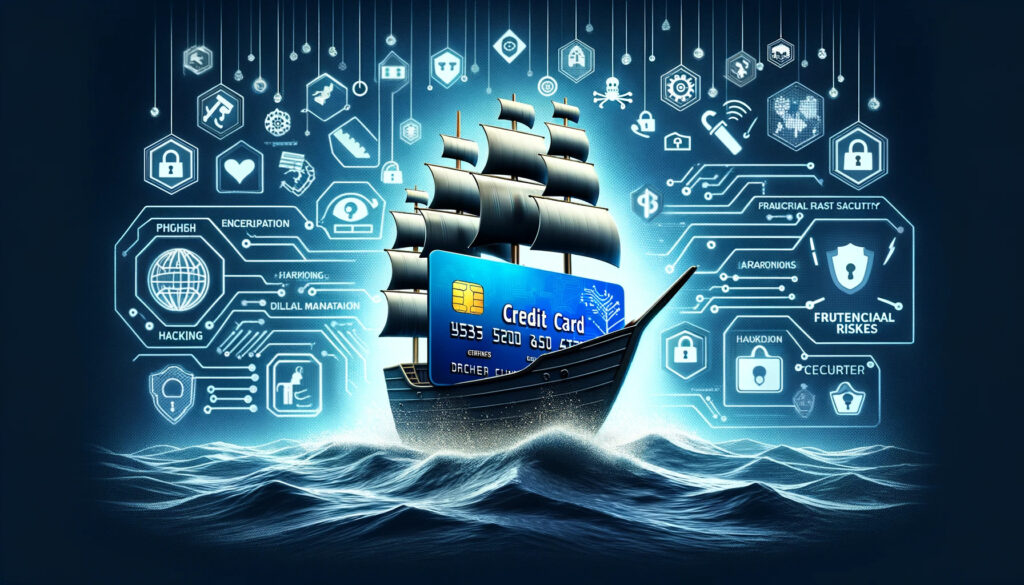
- High-Interest Rates and Overspending: Avoid financial strain by paying off balances in full each month and using budgeting tools provided by credit card companies to monitor spending.
- Credit Score Impact: Understand how late payments and high credit utilization can negatively affect your credit score. Regularly check your credit report to stay informed.
- Fraud and Security Risks: Stay vigilant against fraud. Regularly review statements for any unauthorized transactions and report them immediately.
- Debt Accumulation: Be cautious of accumulating debt. Use credit cards for necessary expenses rather than impulse purchases to maintain financial stability.
- Understanding Fees and Penalties: Familiarize yourself with potential fees, such as late payment charges, annual fees, and foreign transaction fees, to avoid unexpected costs.
Credit Cards vs. Debit Cards and Cash
| Payment Method | User Protection | Credit Building | Convenience | Budget Control | Fraud Risk | Rewards/Benefits |
|---|---|---|---|---|---|---|
| Credit Card | High (fraud alerts, zero liability) | Excellent (builds credit history) | High (widely accepted, online use) | Varies (can lead to overspending) | Low (due to protection measures) | High (rewards, cashback, travel points) |
| Debit Card | Moderate (direct bank access, some fraud protection) | None (does not affect credit score) | High (direct bank access, widely accepted) | Good (limited to account balance) | Moderate (linked to bank account) | Low (few or no rewards) |
| Cash | Low (no protection if lost or stolen) | None (no impact on credit history) | Moderate (not always accepted, no online use) | Excellent (limited to cash on hand) | High (irrecoverable if lost) | None (no rewards or benefits) |
Choosing the Right Credit Card
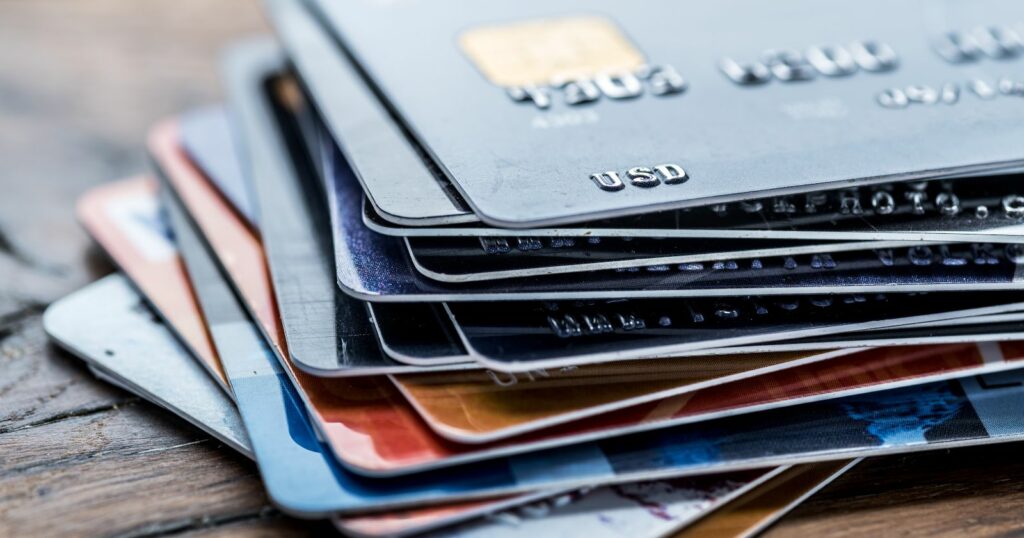
- Factors to Consider: When choosing a credit card, consider the Annual Percentage Rate (APR), minimum repayment amounts, any annual fees, and the rewards offered. These factors directly impact the cost and benefits of using the card, influencing your overall financial management.
- Understanding Terms: Grasping credit card terminology like APR, grace periods, and various fees is essential for making informed decisions. This knowledge helps you avoid unexpected charges and take full advantage of the card’s benefits.
- Based on Spending Habits: Select a credit card that aligns with your spending habits and financial lifestyle. Whether you’re a frequent traveler, a big spender, or someone who prefers simple cashback, there’s a card tailored to your specific spending pattern.
- Credit Score Requirements: Different credit cards have varying credit score requirements, so it’s important to know your score and understand which cards you’re more likely to be approved for. This approach prevents unnecessary credit inquiries that could affect your score, with certain cards being more suitable for credit building or repair, and others offering extensive rewards for higher scores.
Innovative Uses of Credit Cards
Explore how credit cards can be used for debt consolidation, credit score improvement, and as a tool for small business owners.
Debt Consolidation
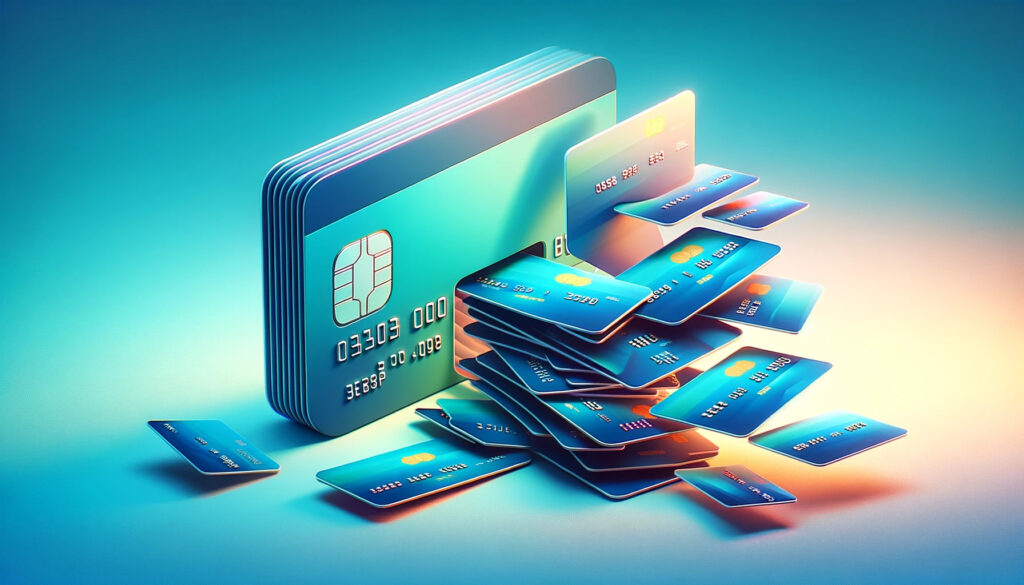
Credit cards can be a lifeline in managing debt through consolidation. By transferring multiple high-interest balances to a single card with a lower APR, you not only streamline your payments but also potentially reduce the total interest paid. This strategy is particularly effective for simplifying finances and gaining better control over debt.
Credit Score Improvement
Using credit cards wisely is a proven method for boosting your credit score. Regular, on-time payments and maintaining a low credit utilization ratio are key practices that reflect positively on your credit report. Over time, this disciplined approach can significantly enhance your creditworthiness, opening doors to more favorable financial opportunities.
Tools for Small Business Owners

For small business owners, credit cards are more than just a payment method; they’re a financial management tool. They offer the flexibility of a short-term credit line for cash flow management and rewards on business expenses. Additionally, many business credit cards come with expense tracking features, simplifying accounting and budgeting processes.
Technological Advancements in Credit Cards
The world of credit card technology is constantly advancing, enhancing both convenience and security for users:
- Contactless Payments: This feature allows for quick, tap-and-go transactions, streamlining the checkout process and making it faster.
- Security Chips: Embedded in cards, these chips generate unique transaction codes, significantly boosting anti-fraud measures.
- Digital Wallet Integration: This turns smartphones into convenient payment tools, enabling secure, one-tap payments and enhancing user experience.
These technological strides not only make transactions smoother but also provide a stronger defense against digital security threats.
Maintenance and Upkeep of Credit Cards

Effective credit card management hinges on routine credit score checks and a clear understanding of credit limit increases. Regularly monitoring your credit score helps identify any discrepancies or fraud, while also informing your decisions regarding new credit applications. Understanding credit limit increases is crucial; they can enhance your credit utilization ratio, a significant factor in your credit score. However, it’s vital to use increased limits judiciously to avoid the temptation of overspending. Staying vigilant with your credit card activities ensures a healthy financial relationship with your card issuer.
Embarking on Your Credit Card Journey
In conclusion, navigating the world of credit cards is akin to embarking on a financial expedition, requiring both insight and foresight. Assess your personal and financial needs, compare the myriad of options available, and choose a credit card that not only aligns with your lifestyle but also bolsters your financial health. Whether it’s for managing expenses, building credit, or reaping rewards, the right credit card can be a powerful tool in your financial arsenal. Remember, the key lies in informed decision-making and responsible usage, paving the way for a stable and prosperous financial journey.







